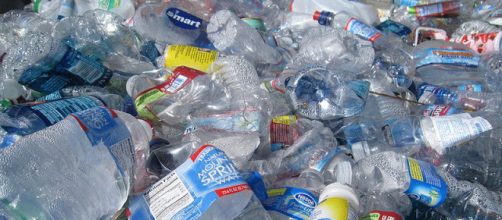The world faces a problem of Plastic Pollution that appears to have no tailor-made solution, and the magnitude is unbelievable. People have got accustomed to discarding empty Plastic Bottles after gulping down the contents, and these discards add to the litter. It is necessary to cultivate the habit of getting rid of these unwanted items in such a way that it does not damage the environment.
Sky News reports that a couple of supermarkets in Britain have launched a scheme of rewarding those who return the empty bottles. The customer will have to, initially, pay a deposit which he will get back when he returns the bottle.
That will ensure less plastic finding their way into the oceans.
A similar scheme in Norway has achieved stupendous results – people returned more than 95-percent of empty bottles. Obviously, initiatives of this nature must be encouraged to fight off the perils of plastic pollution.
The plastic recycling scheme
Deposit Return Schemes for empty plastic bottles can bring about a change in the thinking process of consumers. Plastics are a non-biodegradable material and continue to remain for ages. They hurt the environment because people usually treat them as waste and discard them so that they end up as litter on the beaches.
These can be recycled if collected and dispatched to the recycling plants.
The scheme has found acceptance in some countries and, with supermarkets in Britain showing an interest, Scotland could follow suit. In fact, it should be introduced all over the world because arresting plastic pollution is everybody’s business.
Magnitude of the problem
Greenpeace feels the reward scheme is a positive sign and has welcomed the move to check plastic pollution. Campaigners have found that the extent of plastic waste on the UK beaches is increasing, and steps must be taken to control it. The exact point of time when plastic entered our lives is not known, but the damage to the environment is there for all to see.
Empty plastic bottles end up in the sea on a regular basis and litter the beaches.
Animals ingest plastic bags and die, while plastic waste clogs the drainage systems. The volume of such waste is estimated to be between 4.8 million and 12.7 million tons every year.
Richard Walker, director of one of the supermarkets that have launched the reward scheme, has indicated that truckloads of plastic waste enter the oceans. In Britain, a staggering 16 million plus single-use plastic bottles could go for recycling every day, and if that is achieved, it will help the cause.


